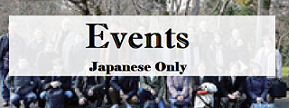Members
・応募書類の受付をした応募者にメールで通知いたしました(通知方法を変更したため、マイページではご確認いただけません)。メールが届いていない場合は recruit@mail2.adm.kyoto-u.ac.jp までご連絡下さい。
・書類選考の結果については9月下旬頃にメールにてご連絡をさせていただく予定です。
・選考スケジュールの変更がありましたら、ホームページ上でご連絡いたします。
-We sent an email to the applicants whose proposals had been received. (Notification method has been changed. We will not notify you on your applicant’s personal page.) If you have not received the email, please contact to recruit@mail2.adm.kyoto-u.ac.jp.
-We will inform you of the results of the document screening by e-mail around late-September.
-If we change any screening schedule, we will inform you on our website.
14th
Term: Apr. 2024 ~
 :Global Type
:Global Type
 :Tenure-track Type
:Tenure-track Type
● OTANI Yuka Associate Professor
Research Interests: East Asian Buddhist studies, History of interpretation of Buddhist precepts
Research Topic: Research on the Mahayana practice of precepts and the thought thereof in Medieval Japanese Buddhism
Host Department: Institute for Research in Humanities
Previous Affiliation: Faculty of Letters, Ryukoku University
Short Introduction
Around the 5th century B.C., Śākyamuni Buddha as the founder of Buddhism created monastic rules (the Vinaya) for his disciples who had abandoned family and secular work to regulate their communal life in India. The Mahāyāna movement, emerged about 500 years after the Buddha’s nirvana, emphasized the Buddha’s previous lives of continued compassionate practice as a bodhisattva and promoted the bodhisattva precepts as guidelines for living like the Buddhas. Therefore, in the process of translation from Indic languages into Chinese, there has been no fundamental distinction between the Vinaya and the bodhisattva precepts for East Asia Buddhism. Instead it advocated that all Buddhists should follow what has been translated as “jielü戒律.” (the Vinaya and bodhisattva precepts) The "jielü" established by the Buddha are strictly forbidden to be altered. However, given different periods, regions and cultures in East Asian countries, it is impossible to replicate the exact same lifestyle as that of India during the period when the Buddhist scriptures were established with. The way of life as the Buddhist derived from the tension between human behavior and religious ideals remains in the form of commentary on the precepts. The aim of my study is to provide interpretation on the Buddhist practices of a certain historical period and region by examining these commentaries. This project aims to investigate the principles behind the concept of “breaking the precepts” with a specific focus on medieval Japanese Buddhist monastism.








